Why I Have To Be So “Rude”
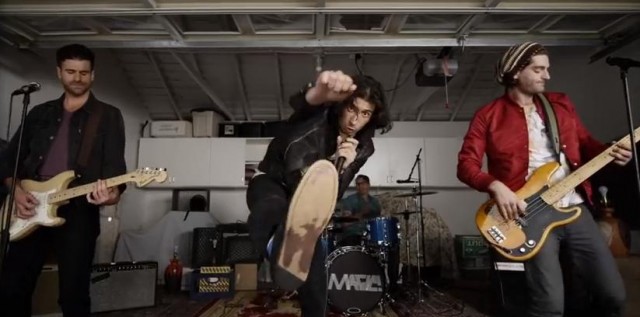
“Rude” is the #1 song in America; “Rude” is a strong contender for the worst song I have ever heard. For the lucky uninitiated, I can only explain “Rude” like this: it’s the aural equivalent of a man listening to reggae for the first time in his racecar bed, slowly fucking the hole in a Kidz Bop CD.
Here, take a dip, the water’s absolutely disgusting!
Ostensibly, the success of Magic!’s “Rude” can at least partially be explained by the history of American top 40’s irregular dabbles in reggae, which have tended to appear in the form of one-offs rather than any tangible wave: “I Can See Clearly Now” in 1973, “Red Red Wine” in 1984, Shaggy in 2000. But “Rude” is a reggae song the way a gas station taquito is a formal expression of Mexican cuisine, and I think, if we’re going to situate the song in some larger context, “Rude” is most interesting as an artifact in the realm of ideas. “Rude” is like a Dorito bag that got stuck on a spike of the crown of the Statue of Liberty: it’s a pop object with no content and only as much form as is necessary to deliver brief chemical gratification, which, through an unlikely ascension, becomes newly visible as a pure expression of tragedy, degradation and American garbage. “Rude” is utterly embarrassing and radically unselfconscious, a derpfaced college sophomore defensively grunting FML as he waddles to the closet for toilet paper because he ran out mid-wipe.
The first time I heard “Rude” I thought it was a 1–800–411-PAIN ad, because Detroit radio is currently running one that sounds sort of like a more palatable version of “Rude.” The next couple of times I had the sort of physical reaction I associate with suddenly coming in contact with bees; before my mind could process what was happening, I pawed at my radio dial quickly, ahhh, get it away!
Eventually, because I do spend a lot of time in my car listening to top 40, I let my guard down for long enough to consciously hear the end of the chorus: the “marry that girl” refrain, suggesting cartoon lobsters singing under the sea, and then the “marry her anyway” echo that follows, frenzied and palm-sweaty sentimental, like a sonic blend of Crazytown and Tal Bachman. MARRY DAT GURL, marry her anyway; MARRY DAT GURL, marry her anyway.
Thus was I swept under the horrible surface to briefly swim in the song’s tenuous claim to an idea: “Rude” is one of those songs with a “story.” A drunk second cousin to the “You don’t know you’re beautiful (babe, let me help you with that low self-esteem [WITH MY DICK])” mainstream pop banger, this song takes as its central conceit the retrograde plight of a young man requesting a title transfer. Can I have your daughter for the rest of my life, sings the singer to a dad, the melody wandering downwards to illuminate the fact that this is not a real question. Say yes say yes because I need to know. I am from the South and understand that some people enjoy this “tradition” but it’s also 2014 and the only true “need to know” situation I can imagine is if the daughter is under the age of consent, in which case: ask away. Otherwise, time to do a little less.
About a month ago, I was in Los Angeles and very stoned in the middle of the afternoon and taking an Uber across town. Stuck in traffic, the guy driving sent a string of emails from his Blackberry, pausing only to turn up the radio when “Rude” came on, and then, a few seconds later, turn the song up even more. I accepted this divine message: the light in me needed to salute and honor the light in “Rude.” So I listened closely, wanting to understand.
Separating the topline into melody and words, it’s easy to see why “Rude” hit #1. The melody is insidiously jingle-catchy: as Emma pointed out, Rihanna on this melody is an idea that really makes u think. But everything else about the song is horrible. The production brings to mind a backing track for a ’90s youth group musical in Orlando; the instrumentation is cheap, loose and stupid, featuring beginner’s guitar strums on the downbeat of every chorus chord change, brief bouts of overly pat yet somehow struggleful syncopation over an unholy noodling bass line, and a mangled guitar solo that’s half-hearted and smarmy to the point that it immediately reads as its own send-up. The denatured skank beat is pitched high, like a headache, and the whomping elementary on-beat weighs it relentlessly down.
I often have intensely physical reactions to music, mostly when I love it; in this instance I was gasping for breath by the end, as if the song were trying to kill me. But then it ended and we were still gridlocked by a wide expanse of bored, sad humans on our long collective journey from song to terrible song. The smog and heat shimmered around the windows, and the driver put down his phone and surfed through stations, landing, again, on “Rude.”
“I really like this one,” he said, offhandedly.
When I got to my friend Derek’s house I immediately lay face down on a long wooden bench in his living room, unable to speak. He finally extracted the word “rude” out of me as explanation. “You gotta watch the video,” Derek said.
“Absolutely not,” I replied.
Then we watched the video.
Here is the lead singer. When he first appeared on screen I almost started crying because I was still stoned and I thought he was a weimaraner wearing a wig:
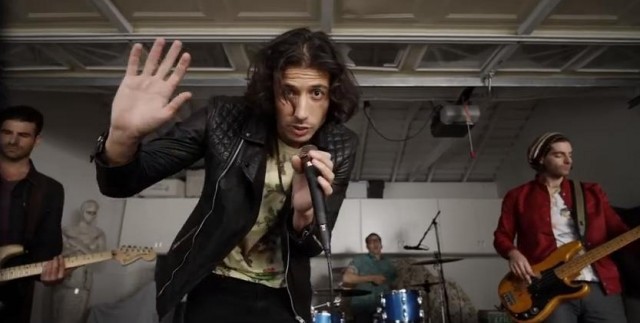
Here is his love object, an Instagram filter:
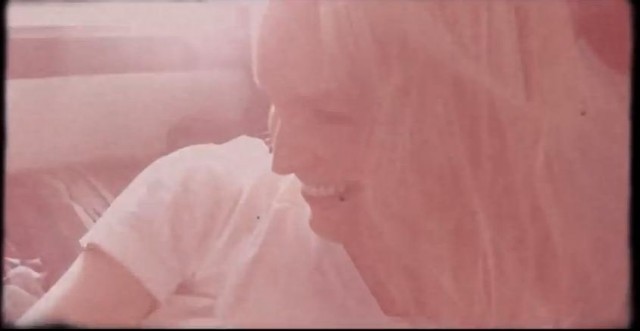
Here’s how her dad responds when our protagonist shows up at the door:
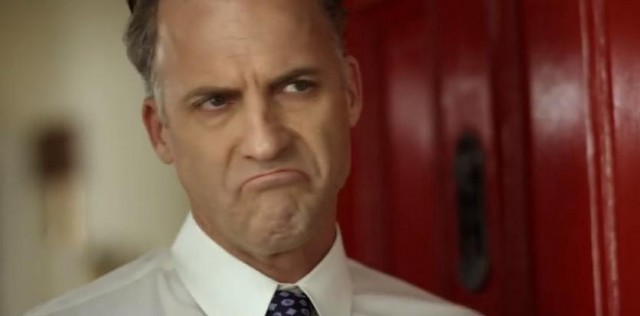
Here is the singer’s face when dad says no (please note the bros well in sight in the back):
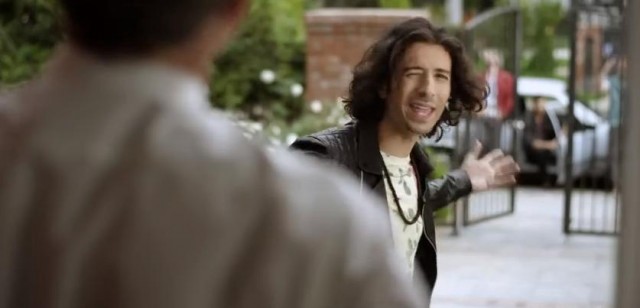
Here is the awful thing his bandmates do during “marry that girl”:

Here’s how, pumped up by his bros, he chooses to present himself the second time the chorus comes around:
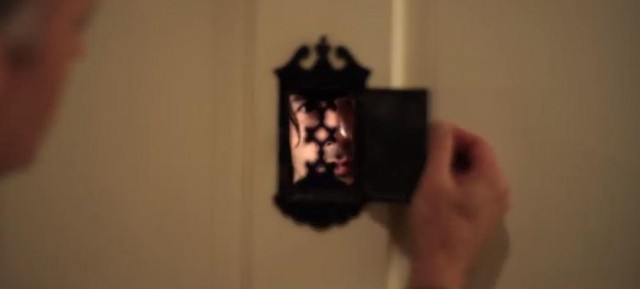
Dad, quite sensibly, does not open the door. So the girl changes from her Dad outfit:
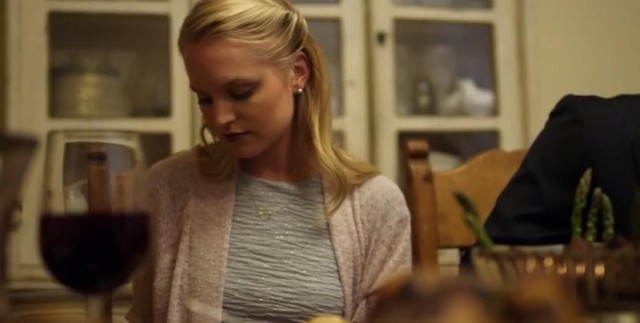
To her crazy/sexy/boyfriend outfit:
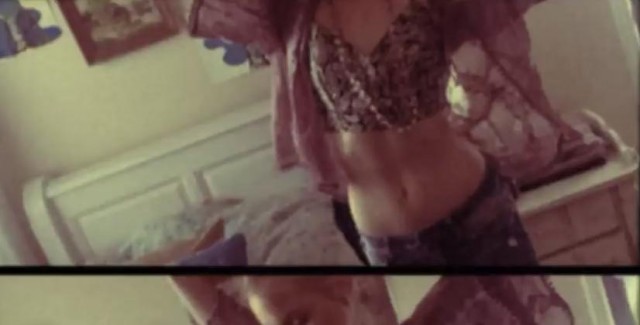
She sneaks out of the house, and he gets on his knees and proposes. Because no one involved in the production in this video has even the slightest bit of chill, here’s how they show up at the front door the third time the chorus hits:
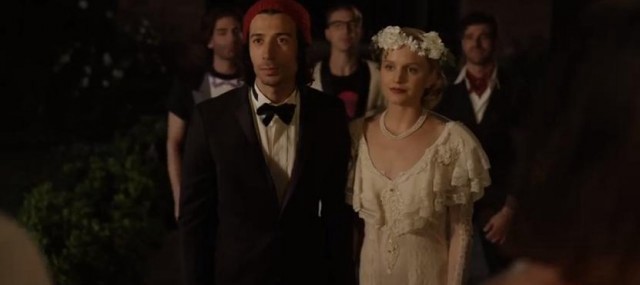
The literalism of the ’90s is alive in Rudetown. And here is the rest of their wedding:
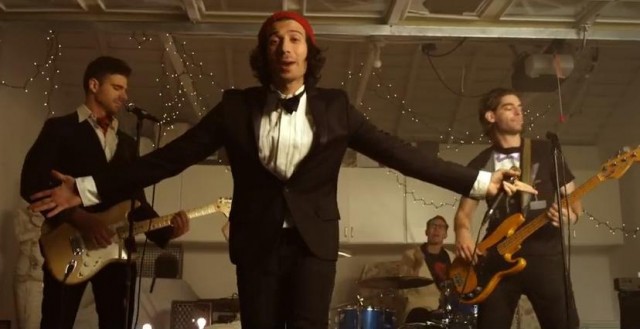
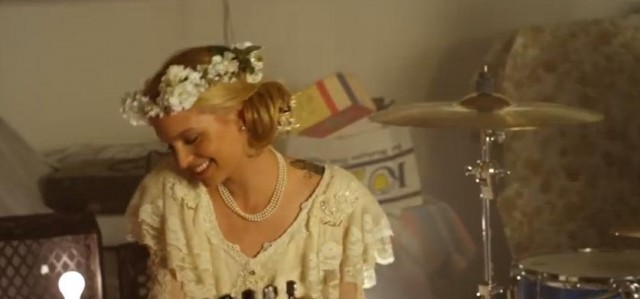
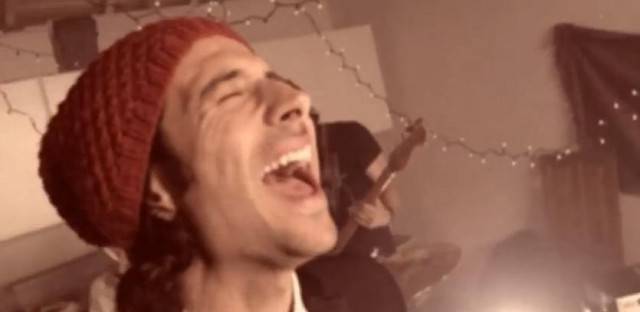
Love that wedding beanie.
After watching the video, I became heuristically unable to understand “Rude” in any other framework outside it being a joke. My friend’s roommate, a successful music producer, got home and said, “Oh yeah, love that song,” and I was 100% convinced that he was kidding; even now, after several more of my tunewise, trustworthy friends have voiced genuine enthusiasm for it, I can’t imagine any possibility other than them kidding me and everyone trolling from Magic! on down.
This is my own problem, an idiot’s problem, the inevitable result of so much time spent doubling down on jokes until they become unrecognizably assimilated into my lifestyle; the distance between poles eventually had to go. But now “Rude” has become the tesseract of both my musical universe and my structural understanding of the relationship between intention and result. It now seems not only possible but staggeringly well-accomplished that a song could draw all its life force from achingly spot-on and specifically out-of-date self-parody without no one involved in the production ever really finding out or in any way having to know. Everything’s collapsed now, everything’s embarrassing.
It’s worth mentioning that Magic! got their name from a joke suggestion. Their producer suggested that “Magic,” unpunctuated, was too generic; he “sarcastically drew an exclamation. We were like, ‘Eh, looks good to us.’”
But like, how good did it look?
The frontman of Magic! is Nasri, an incredibly successful and versatile songwriter (Bieber’s “Never Say Never” and Pitbull’s “Feel This Moment,” among many others) who goes by his first name only. In late April he gave an interview to a radio station: “The message for us right now is bringing back really good music, and people who play together in a really good band. Just to bring back really fresh music. And also just positivity. You know, relax, chill out. That’s why our music is really chilled out, because we believe in that.”
In the same interview, he talks about the origin of “Rude.”
It actually started off a lot darker. It was about a real life situation, I was in a not very healthy relationship, and she got mad at me, and she was mean. And the next day I was singing, why you gotta be so rude, don’t you know I’m human too, and it was a really dark vibe, but that didn’t really work for our band.
So they changed the vibe to what it is currently, which is a lot of things but not “really dark,” and now they’re on top of the charts. Puja Patel interviewed Nasri more recently at Spin, and asked him if the lyrics came from personal experience.
“No,” he said, “it’s just made up. The lyrics are made up. I was just having fun. Most of the album is more personal, but ‘Rude’ is just something fictional that popped into my head.”
And this is probably the greatest argument against “Rude”: it’s the type of song where it doesn’t matter at all that its writer and frontman can’t keep his barely delivered stories straight for one minute. The idea of sincerity is flagrantly unimportant within the framework of “Rude.” It doesn’t matter if the song’s aesthetic and lyrics and video seem like a joke, or even maybe (okay, probably not) are a joke; it doesn’t matter how or why people like it, because the Dorito bag has ascended, and “Rude” has hit #1. Smug, tiresome, mealy-mouthed hack job or not, it’s the first reggae song to top the charts in more than a decade.
At the end of their interview, Puja asked Nasri if he was worried that the hook of “Rude” would make the song come off as a shtick. “No,” he said again. “Everything is a shtick, man. Everything is a shtick. Everything. Who is completely organic? It doesn’t make any sense.”
Jia is not a music critic but she is gonna be a “Rude” scholar on Rap Genius.